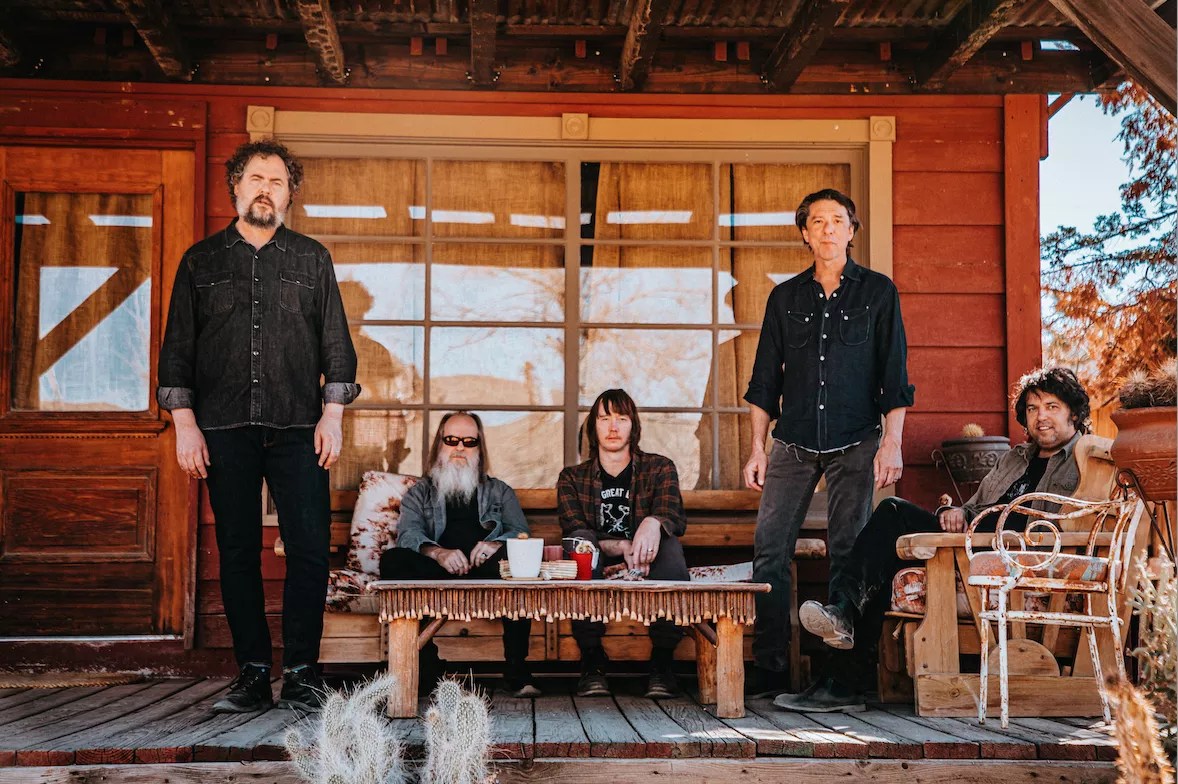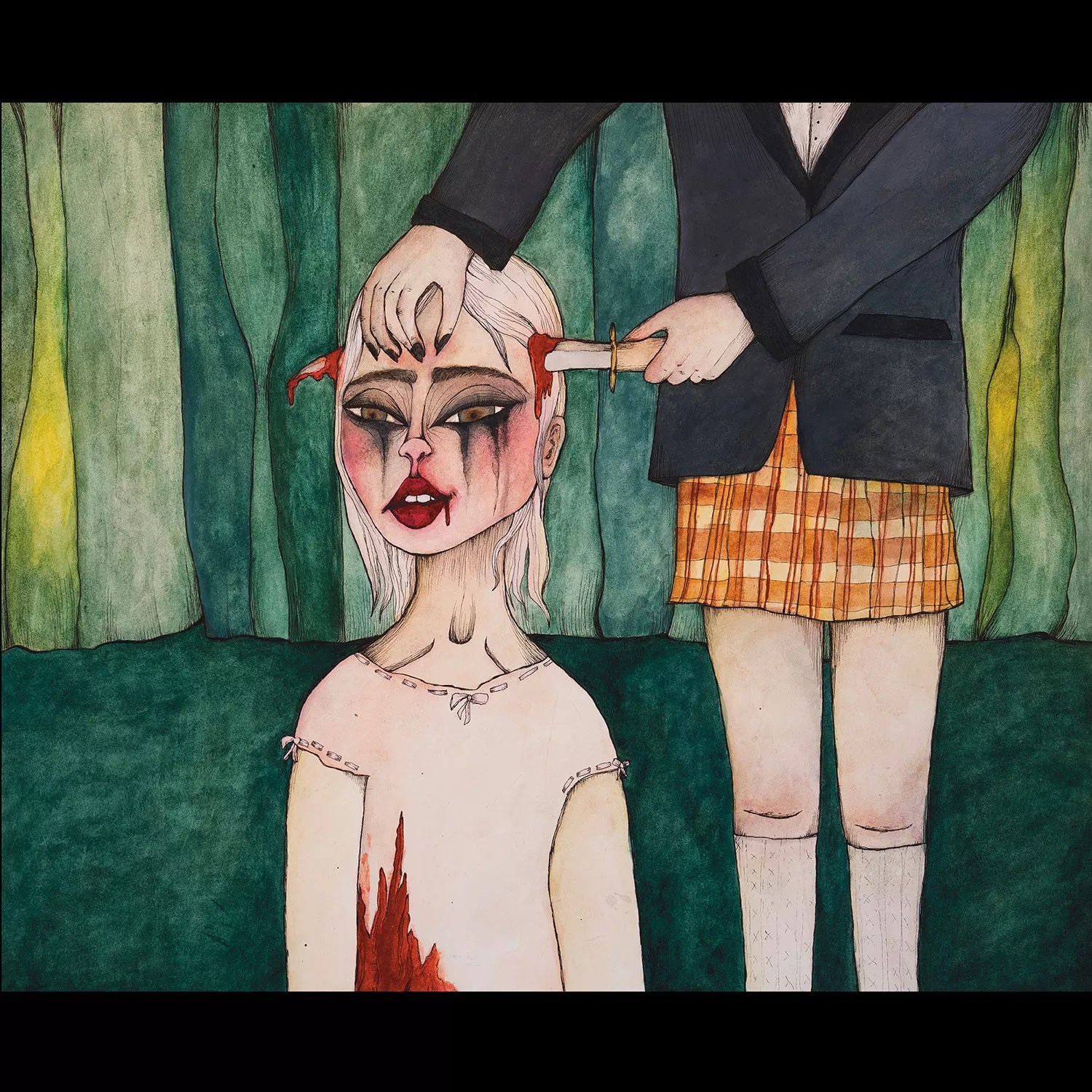
Brantley Guitierrez

Audio By Carbonatix
Drive-By Truckers‘ founder and core lyricist Patterson Hood admits that the band has never been super good with names. And it didn’t start with the stage name Drive-By Truckers, which Hood now refers to as “somewhat awful,” which may be why the band often goes by its initials, DBT. Whatever you’d like to call the band, DBT will be at the Ogden Theatre on Friday, June 20, and the Boulder Theater the next evening for its “Charm and Decadence Tour, which includes co-headliner Deer Tick.
The alt-country, Southern roots-rock band was founded almost exactly 29 years ago, on June 10, 1996. Hood and Mike Cooley, a fellow rocker/Hood’s former college roommate at the University of Northern Alabama, had been playing in different bands over the previous eleven years. They were Adam’s House Cat for a while, which Hood recalls as “really good,” with “some critical acclaim, but no tangible success.” Following that band’s breakup, the duo performed together under the name Virgil Kane, and later formed the band Horsepussy with future DBT bassist and vocalist Adam Howell and Aaron Bryant.
So yeah: not great with the naming. But that’s something Hood embraces. “I kind of have a proclivity for loving bad names,” he admits.
Still, Hood wrote an article for NPR in the summer of 2020 about his discomfort with the name Drive-By Truckers. It was titled “Now About the Bad Name I Gave My Band,” and begins with the line, “What kind of asshole would name his band Drive-By Truckers?” It was written after the band Lady Antebellum changed its name because of what was then a welcome increase in cultural sensitivity (one currently under attack and experiencing disappointing reversion in Trump’s America, as the activist in Hood would point out), but it was also addressing a question even his fans had occasionally asked.
To really understand how it came about, Hood suggests you have to go back a few years. After the breakup of Horsepussy, Hood says he and Cooley had a falling out. It was “mostly due to years of frustration and broken dreams,” admits Hood. During this time apart, Hood says he was turned on to old country music. “I’d grown up hearing it,” he says, “but not really listening or even liking it. But I became somewhat obsessed with the idea of applying my punk rock ethics of rock to a country format. Ironically, the only other live music I was listening to at the time were live bands I would see playing in Athens, Georgia, and Atlanta’s burgeoning hip-hop scene.”
In his article for NPR, Hood wrote that “the band name was intended as a tribute to two forms of music that I loved and revered. Hip-hop in the mid-’90s was filled with crime sagas, not necessarily far removed from the content of old Johnny Cash songs – which, of course, I also loved – and a direct descendant of the narcocorrido. I would not (and regardless, could not) rap, but I could approach my subject matter in a lyrical way, set to this old music that was a new passion of mine. From the start, the band was fun and rowdy and loud as hell. Our name had an irreverence that befit our style and sense of humor. It was such an absurd band name. I had the privilege of being blissfully unaware.”
Hood is ambivalent about the name these days. “It hasn’t aged well, but again, there’s plenty of great bands with unfortunate names, I guess,” he says. “The name is often misunderstood and makes people think we’re some kind of novelty act. We have a lot of humor in our songs, but we’re pretty damned serious about it all. At this point, it just seems silly to change it. Most people call us DBT anyway. We’re better than we’ve ever been and playing shows at the top of our form so I guess you can call it whatever.”
Hood recently came out with a solo effort – his first in thirteen years – called Exploding Trees & Airplane Screams. The album dropped in February, and it’s both familiar and something of a departure. “There were a lot of sonic and textural aspects of that album that I was eager to explore,” he says. “DBT could play the fuck out of anything, including [the songs on that solo album], but it was cool having woodwinds and strings and all of the wonderful guests that were kind enough to lend their talents to my little coming of age project.”

Patterson Hood’s first solo effort in 13 years debuted early in 2025
ATO Records
Speaking of coming of age, Hood credits his early musical heroes for ongoing inspiration. He lists several that were seminal to his tastes and his style. “Neil Young, Bruce Springsteen, Elton John, Todd Rundgren, Led Zeppelin, Pink Floyd, the Clash, R.E.M., the Replacements, Tom Waits, Warren Zevon,” he ticks off. “A very long list.” But he quickly adds that just as important are the modern bands that he follows: “I love Wednesday, MJ Lenderman, Waxahatchee, Lydia Loveless, Kevin Morby, Friendship, Cameron Winter, Haim, Craig Finn and Big Thief. That new album by Julian Baker & Torres is fantastic.”
One of the hallmarks of Hood’s lyrics and DBT’s long list of albums is a slant toward politics and social issues. That’s probably most pronounced with the more overt political messaging of their 2016 album American Band, but Hood claims that was far from their first foray into such commentary. “We’ve always been political,” insists Hood, “so we were pretty surprised when people acted surprised. I mean, ‘Wallace’? Southern Rock Opera? ‘Puttin’ People on the Moon’? I guess the period piece aspect of those songs gave some people a way out without having to ask uncomfortable questions. When American Band first came out, we played a show in San Luis Obispo, California, where they staged a mass walkout during ‘What It Means.’ It was surreal, but they bought the tickets, so…”
Hood says that he used to favor a “big-tent approach, like Willie Nelson” as he calls it, with fans of different and “super diverse” political affiliations coming together to just enjoy the music. “But really, it’s been so much nicer since those that left did so. There’s seldom any bad element anymore, which has caused more people to want to come out and see us,” he says. “If you’re going to cop an attitude about what we say and sing, then I don’t want you there. I always say that politics is personal and the personal is political. The current administration literally hurts my family in many ways. Fighting back against that is very personal.”
This isn’t the first time that Hood has credited fatherhood and family as being a turning point in terms of speaking out and letting his music do the same. “I feel like both of my kids have made me a better person. I could say the same for my wife, also,” he says. “I love all of the band kids, we all have amazing kids, some of whom are now grown.” That love that kindly binds has encouraged Hood to become more focused in his musical discourse, despite some in the industry advising him that it might limit his audience. Not that he gets that advice much anymore. “Most don’t bother,” he says. “They wouldn’t like my response anyway.”
But the issues themselves have shifted a little bit, if not expanded. “AIDS research and help for the stricken was a big deal to me in 1996,” Hood recalls. “Now we’re watching these assholes cutting funding for the very things that have helped calm that horrific epidemic. These people are pure evil in what they’re doing and I’m tired of people’s ignorance being an excuse to be racist assholes.”
Hood says that one thing DBT isn’t tired of is playing Denver. “It’s always been very good to us,” he says. “I love playing Colorado. The first time was at a dive bar – can’t remember the name, but it was probably around 1999? The bar was between the stage and the crowd. Very surreal.”
But things got better – one of the next Denver appearances coincided with the band’s drummer breaking up with his girlfriend. “He got very drunk and played the most primal, crazy show ever. We all joked that the next time we came to town, we’d sell out,” Hood recalls. “And we did.”
Drive-By Truckers plays the Ogden Theatre, 935 East Colfax Avenue, 7 p.m. Friday, June 20, and Boulder Theater, 2032 14th Street, Boulder, 7 p.m. Saturday, June 21. For tickets and more information, see the AXS website.